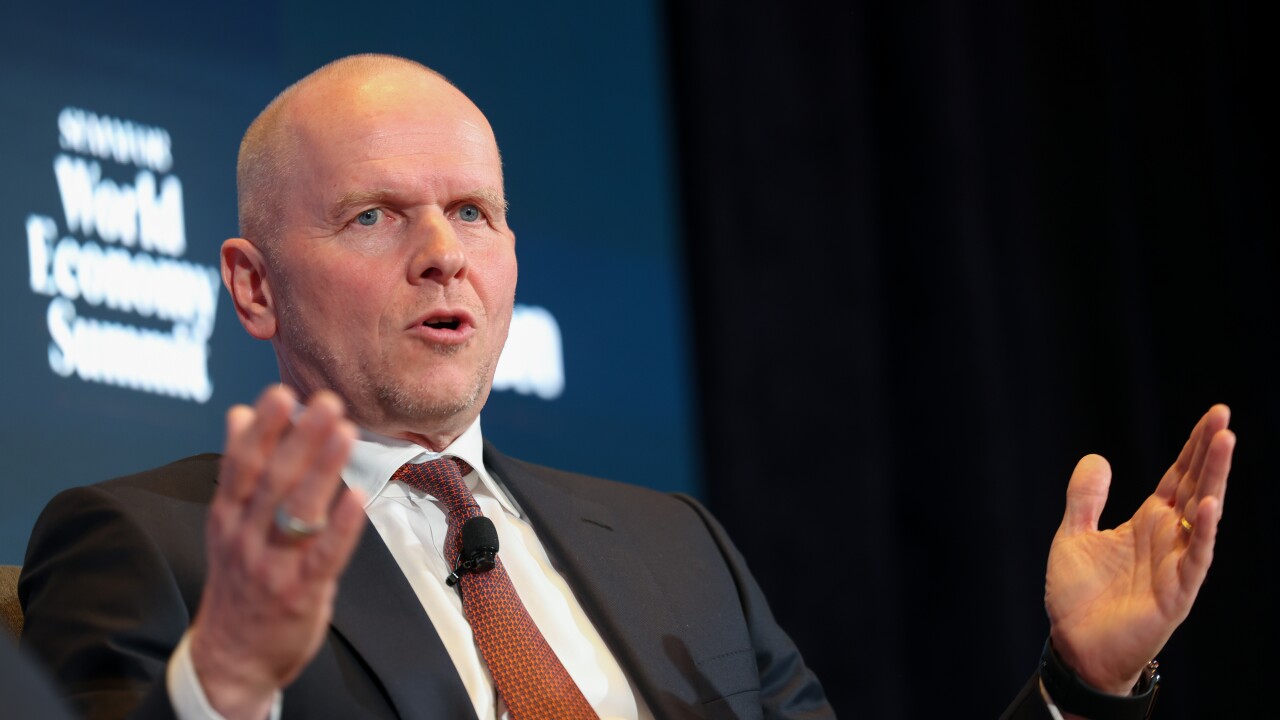-
WASHINGTON Unions and left-leaning public interest groups will meet personally with Federal Reserve Board Chair Janet Yellen on Friday to ask for greater transparency at the agency, including in its selection of new regional bank heads.
November 11 -
A bipartisan group of House lawmakers is calling on the White House to select a nominee to the Federal Reserve Board with community banking experience.
June 18
WASHINGTON Sens. Elizabeth Warren, D-Mass., and Joe Manchin, D-W.Va., are asking President Obama to nominate Wall Street outsiders to a pair of vacancies on the central bank's board of governors.
In an op-ed penned this week, Warren and Manchin urged Obama to diversify the central bank's areas of expertise beyond the banking sector and academia. Instead, the President should nominate people with a reputation for principled supervision and dedication to policies that will positively affect ordinary Americans, they said.
"The five sitting governors have a variety of academic and industry experience, but not one came to the Fed with a meaningful background in overseeing or investigating big banks or any experience distinguishing between the greater risks posed by the biggest banks relative to community banks," the senators' op-ed said. "By nominating people who have a strong track record in these areas and who have a demonstrated commitment to not backing down when they find problems, the administration can show that it is taking the Fed's supervision problem seriously. Nominating Wall Street insiders for the Board of Governors would send the opposite message."
The Fed has had two vacancies since April, when former Gov. Jeremy Stein announced his resignation to return to his teaching position at Harvard University. Former Gov. Sarah Bloom Raskin also left after she was confirmed as Deputy Treasury Secretary in March.
The op-ed is the most recent merging of liberal and conservative interests in having more community banking and supervisory experience on the Fed board. Manchin is among the most conservative Democrats and represents a red-leaning state, while Warren is among the most liberal members of the upper chamber and hails from a safe Democratic stronghold.
In June a bipartisan group of 87 members of the House of Representatives, led by Reps. Sean Duffy, R-Wisc., and Ed Perlmutter, D-Colo., also urged Obama to nominate governors with experience in community banking or bank supervision. A Senate bill was also introduced in April by Sens. Heidi Heitkamp, D-N.D., David Vitter, R-La., Mark Kirk, R-Ill. and Mary Landrieu, D-La., that would mandate at least one of the two vacancies be filled by someone with community banking or supervisory experience.
The op-ed also comes after a progressive coalition on Nov. 14 met with Fed Chair Janet Yellen and other board members to demand greater transparency in its process for filling vacancies at the heads of the Philadelphia and Dallas regional banks. The groups also called for more accommodative monetary policies and a greater emphasis on increasing wages and meaningful employment.
Shawn Sebastian, a policy advocate for the Center for Popular Democracy, said Yellen was receptive and engaged in the groups' presentation, though she did not indicate what, if any, potential actions she might take in the future. Sebastian said the effort was to present the Yellen and other board members with experiences about the state of the economy rather than abstract and impersonal data and statistics. He said he thought that approach had an effect.
"They get a lot of the data, and the parade of bankers, but when they fear about the economy and dig into the numbers they don't necessarily hear... real, grounded stories," Sebastian said. "They were really engaged and moved by people's stories."
Regardless of whom the president will nominate to fill the openings at the Fed, his window to get those nominations through the Senate while it remains in Democratic hands has almost certainly expired, according to Aaron Klein, director of financial reform at the Bipartisan Policy Center.
"It would be nearly unprecedented" for the nominations with attendant hearings, meetings and paperwork to be pushed through in the lame-duck session, Klein said.
But the bipartisan interest in having community banking and supervisory experience at the Fed means the issue will not necessarily disappear when Republicans take over the Senate in January. The fact that there are two vacancies could also allow the President to nominate one governor to appease Democrats and one to appease Republicans, Klein said.
"I think that the desire to have people on the Fed board with a knowledge of bank supervision and regulation is an appropriate reaction to the financial crisis, and with the expansion of the Fed's regulatory authority and mission, I think it has strong bipartisan support," Klein said. "There are two empty seats, so you can clearly imagine the potential for a diverse set of views to be nominated."




